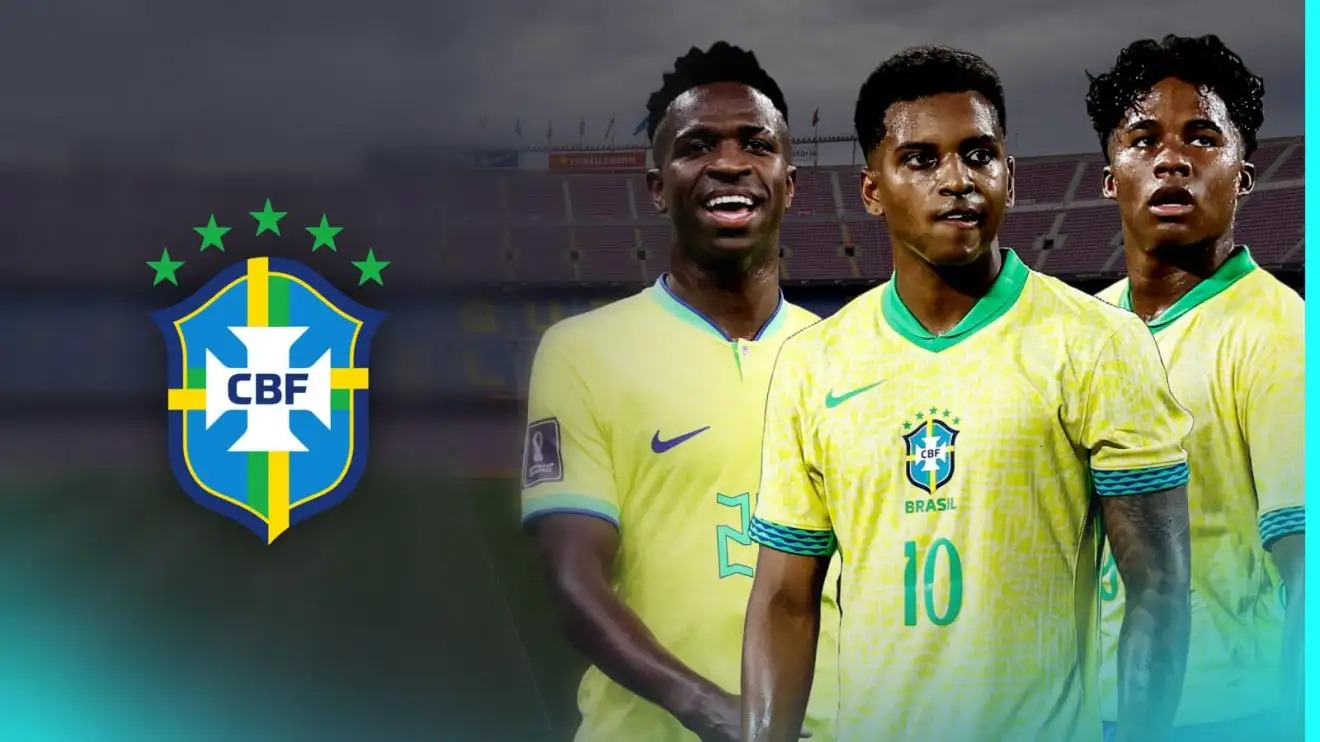Sitting sixth in the South American World Cup qualification table and with just two wins from their last eight games, no one would argue that, heading into the 2024 Copa America, the current Brazil side are worthy of mention alongside the great teams of the nation’s storied football past.

But how they fare in the United States over the next six weeks will signpost whether they could become something special.
The tournament, which Brazil have won just once in the last 17 years, arrives at a crucial developmental juncture for the Selecao. They have reached their starkest period of transition in around a decade and a half, owing primarily to the absence of their talismanic megastar.
Neymar has not retired from international football, but he will miss the Copa as he recovers from a ruptured anterior cruciate ligament. And when he eventually returns, Brazil ought to have moved on from their dependency on him.
Unlike many of the past greats of the game’s most decorated national team, Neymar has been unable to deliver a World Cup, but his iconic status within Brazilian football history is still assured.
With 79 goals from 128 caps, he is the Selecao’s all-time leading scorer – above Pele, above Ronaldo, above Romario. He was the poster boy of the World Cup on home soil in 2014, where his loss to a back injury led to Brazil collapsing in embarrassing fashion, losing 7-1 to Germany in the semi-finals.
From the moment he burst on to the scene with Santos – Pele’s old club – as a teenager in 2010, he was considered a cast-iron addition to the lineage of Brazilian legends. And through triumph and controversy, he has remained one of the best players in the world, always exhibiting a flair, an inventiveness, an arrogant belief in his own outrageous talent to uphold the traditions of Joga Bonito.
But Neymar is 32 years old now. He plays his club football in the Saudi Pro League, away from the elite competitive surrounds in Europe or even the hyper-physical, uber-skilled play of his native continent. And he is in the process of working his way back from a major injury. Put simply: Neymar’s relevance is waning fast.
It’s just as well, then, that a crop of gifted Brazilian starlets is emerging in his wake. Chief among them is Vinicius Junior, the driving force behind Real Madrid’s La Liga and Champions League double this past season and a Ballon d’Or frontrunner. Club-mate Rodrygo, Vinicius’ partner in attack, is delivering on his vast promise, too.
And in 17-year-old sensation Endrick, Brazil have a trio of young Real Madrid stars who have the potential to grow and shine together at club and international level for the next decade. With Neymar out of the equation, they have the chance this summer to wrest the baton from the veteran forward’s grip and drive Brazil into a new era.
It is not just in attack that Brazil are regenerating, either. Manager Dorival Junior has omitted long-time midfield stalwart and current Manchester United man Casemiro from his squad for the Copa America.
The evidence of the 2023/24 Premier League season suggests the 32-year-old’s once incomparable gifts for marshalling the middle third have severely eroded. That department will now belong to the likes of Lucas Paqueta – providing the West Ham player avoids serious sanction for allegations of illegal gambling – Douglas Luiz and Bruno Guimaraes; a Premier League-based trio all, at age 26, about to enter their prime.
There is further young talent, too, in the form of 20-year-old Manchester City-bound winger Savio, Arsenal’s Gabriel Martinelli and Girona right-back Yan Couto.
Brazil’s performances in their warm-up friendlies ahead of the Copa America suggest they are not yet ready to go all the way in the tournament and avenge a loss on home soil to rivals Argentina in the 2021 final.
They eked out a 3-2 victory over Mexico in Texas last weekend thanks to a 96th-minute winner from Endrick. And up against a USMNT side coming off a 5-1 thrashing at the hands of Colombia this week, the Selecao limped to a 1-1 draw in Orlando, Florida.
Against the United States in particular, this young Brazil side showed their naivety. Their performance was disjointed; they resembled a collection of gifted individuals rather than a team unit equal to the sum of its hyper-talented parts.
Rodrygo impressed as a lone striker, scoring his side’s goal and going close on another two occasions. But Vinicius was guilty of overplaying. And, in the country that gave the world the NBA, Barcelona winger Raphinha seemed to believe he’d been imbued with a Stephen Curry-like ability to shoot from long range. He was sorely mistaken.
There is plenty to figure out for Dorival Junior, the coach appointed in January and yet to convince in the role. And there is a lot of maturing for this talent-rich team to get through, even if so many of its individuals are already wildly successful at club level.
The seeds of something special are planted deep within this Brazil side, though. At the Copa America, they need to begin to germinate.
